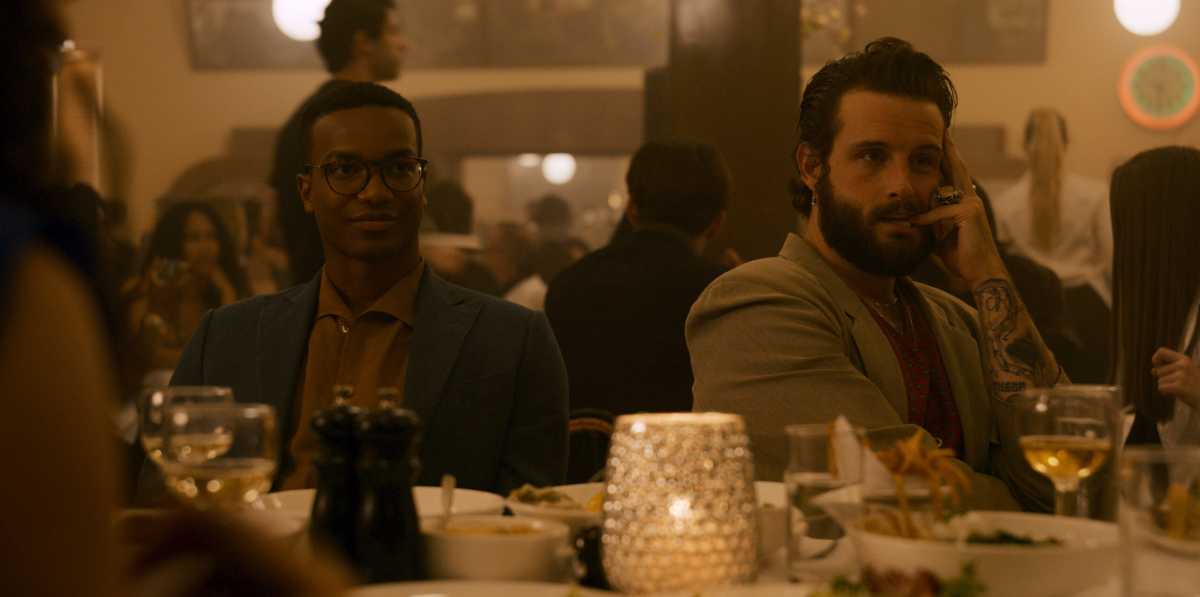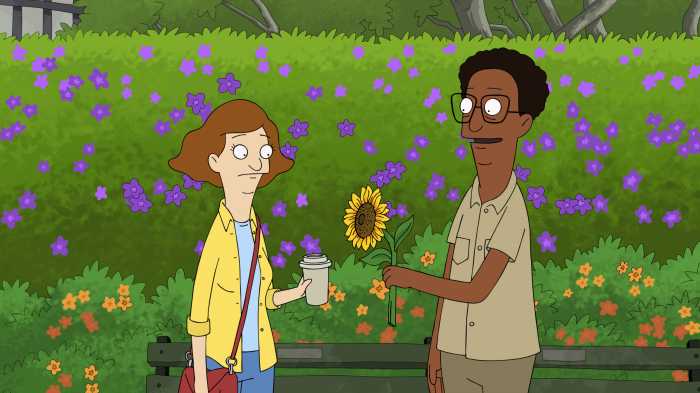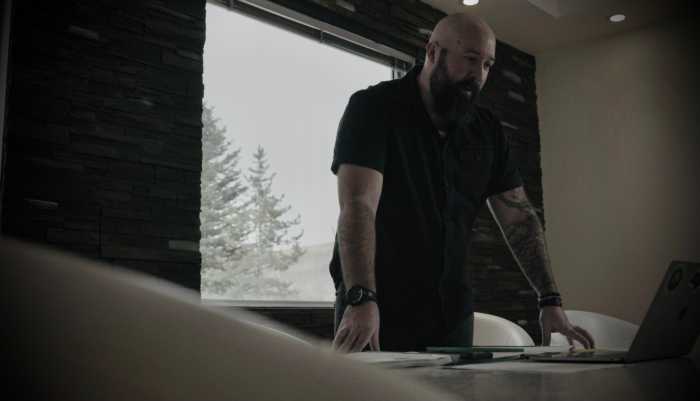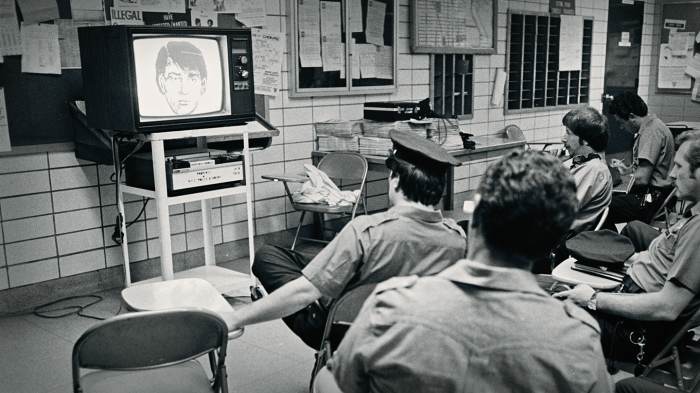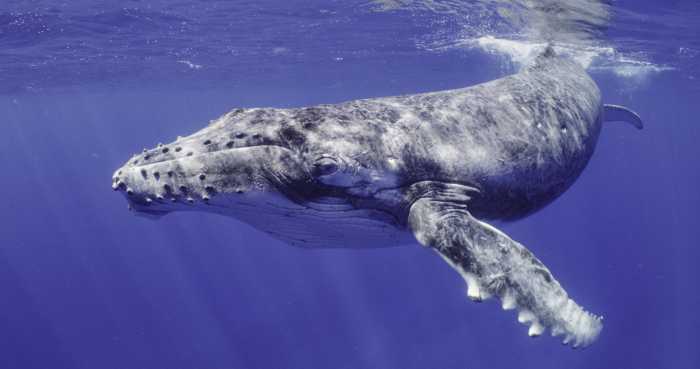When Garth Risk Hallberg’s international best-selling novel ‘City on Fire’ came out almost a decade ago, readers were intrigued by its story set in a pivotal time in New York City—the 1970s. However, when Josh Schwartz and Stephanie Savage decided to pen the tale for the screen (into an 8 episode series), the story shifted in time to take place in 2003, which the creatives say was equally as poignant in history.
The story in the show follows the aftermath of a shooting in Central Park that happens on the Fourth of July. The young NYU student murdered, Sam (Chase Sui Wonders), is found by a young aspiring writer, Mercer (Xavier Clyde), who was in the area for his own reasons pertaining to his passionate yet troubled boyfriend, William (Nico Tortorella.) And Sam’s murder leaves behind an intertwined trail of connections for not just Mercer and William, but a mix of different characters who end up finding out a lot more about themselves and the people they love when searching for answers surrounding her death.
To dive deeper in ‘City on Fire’, Xavier Clyde and Nico Tortorella sat down to chat.
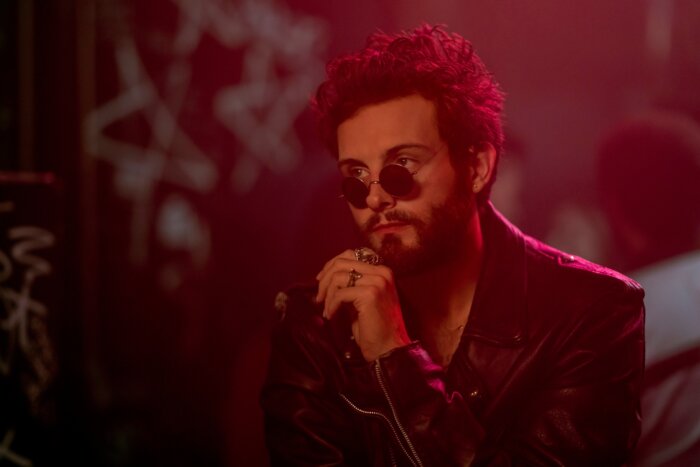
Why sign on with this project in particular?
Tortorella: [I saw the show had] Josh Schwartz, Stephanie Savage, Jemima (Kirke), John Cameron Mitchell—it was kind of his no-brainer for me. Then for William, it was the music, the art, the addiction. I mean, that’s a dream role for any actor.
Clyde: This is a special project, and with everything that this streamer’s putting out, you want to be a part of that climb. So I wanted to jump immediately on this role here, and then having this relationship be such a crux of the characters…One of our most intense scenes was one of the audition scenes, and I immediately wanted to explore more of this dynamic between these characters and why my character continues the struggle that he does with William, and uncover that layer of complexity that keeps someone so attached to such energy and unpredictability. I really couldn’t wait to just start that material as soon as possible.
How would you describe William and Mercer and what they go through both together and separately?
Tortorella: William’s an artist first, it’s his first great love and his ability to create out of nothing. He comes from this royal family of New York so to speak, and he was able to leave it all behind and find this new version of himself—although is it ever really possible to escape that level of privilege? In this dynamic, in this relationship, it’s not just the two of them. There is a third spirit who arguably has the most power in this relationship, and that is the addiction that William is experiencing. It’s a dynamic I know all too well, and it’s difficult, but, if you’re able to get on the other side of it, it can be some of the most rewarding work there is.
Clyde: Mercer is the dreamer. He’s the kid who had these thoughts of changing American society through his writings, his word, and really adding his voice to whatever this shift in culture and society was going to be. So moving to New York was just a way of propelling that dream, and he had those rose-colored glasses on where he figured life was just going to fall into place in his passion and his love life.
He’s someone that starts to really meet reality—that this is a very imperfect human being. But, he’s so intrigued by who William represents and what he wants to eventually be himself…free and just unrelenting in everything he pursues.
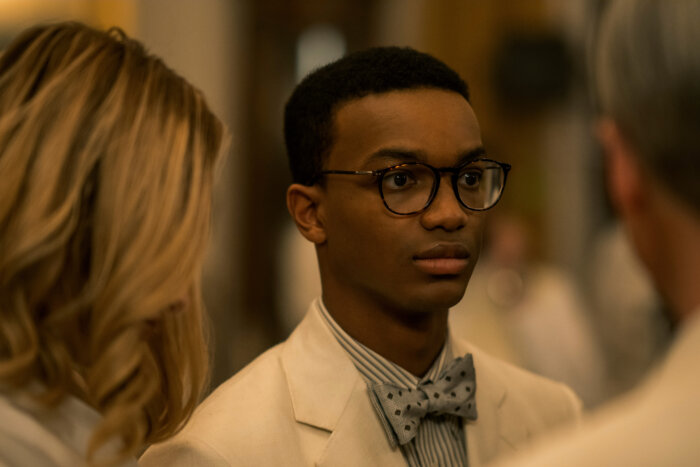
The book is set in the 70s, but the creative team behind the show moved the storyline to 2003 because the years held a similar atmosphere. What were some of the conversations surrounding that change?
Tortorella: The book centers around the blackout in the 70s, and we had a blackout in New York City also in the early 2000s, so it was relatively easy to jump from those two time periods. But with the post-industrial revolution to the creation of the internet, New York was in this era before social media. And it’s also post 9/11 in New York City [in the show.]
My therapist said this to me: “New York City was the internet before the internet.” It’s where everyone went to go find themselves and discover who they were. And while that idea definitely still exists here, you can find anything that you’re looking for [online.] And that lack of access in the early 2000s was the last era of that.
Clyde: It’s one of those conversations where you have these recurring themes just in society in general. You have race, socioeconomic status, gentrification—and all of these things that we continue to have issues and discussions about today that you did in the seventies, eighties, nineties, 2000s, right till today.
In 2023, we’re still facing all of these same issues. So everything with those themes still translates today and it’s something that viewers are going to have such a time recognizing, no matter your generation [you are] because you still experienced all of those issues at some point in your life.
The whodunnit crime genre is always popular—but what sets ‘City on Fire’ apart?
Clyde: To stand out in any genre, it’s the people. This certain mix of characters [and how] they come together from all these walks of life, class status and social situations. You see their relationships and how this relationship affects a relationship on that side of the ensemble. It’s definitely one of those things that you won’t really be able to predict, because it’s a combination that hasn’t really happened before.
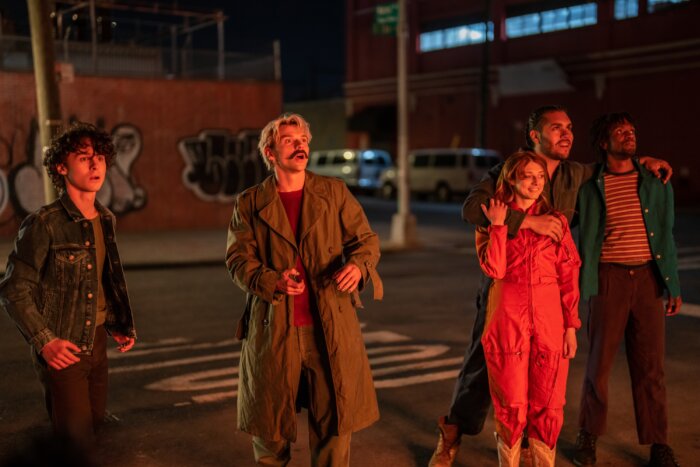
Tortorella: I think with a lot of these whodunnit shows, there’s very clearly a hero and a villain, right? And on ‘City on Fire’, there are good qualities to all these characters and there are shit qualities to every single one of these characters. It is really about each character’s own hero’s journey rather than having a hero on the show, which is just so reflective of New York City and how this city survives no matter what.
‘City on Fire’ is now streaming on Apple TV+



